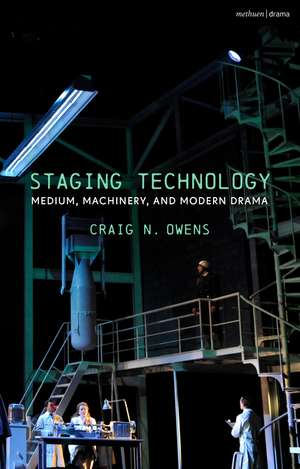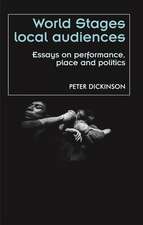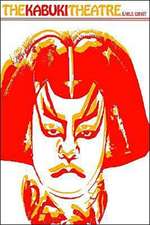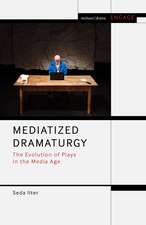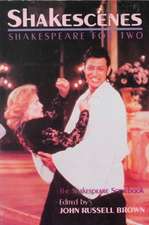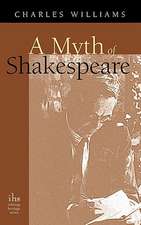Staging Technology: Medium, Machinery, and Modern Drama
Autor Craig N. Owensen Limba Engleză Paperback – 19 oct 2022
| Toate formatele și edițiile | Preț | Express |
|---|---|---|
| Paperback (1) | 197.86 lei 43-57 zile | |
| Bloomsbury Publishing – 19 oct 2022 | 197.86 lei 43-57 zile | |
| Hardback (1) | 539.42 lei 43-57 zile | |
| Bloomsbury Publishing – 10 feb 2021 | 539.42 lei 43-57 zile |
Preț: 197.86 lei
Preț vechi: 257.92 lei
-23% Nou
Puncte Express: 297
Preț estimativ în valută:
37.87€ • 39.43$ • 32.00£
37.87€ • 39.43$ • 32.00£
Carte tipărită la comandă
Livrare economică 10-24 martie
Preluare comenzi: 021 569.72.76
Specificații
ISBN-13: 9781350196704
ISBN-10: 1350196703
Pagini: 296
Dimensiuni: 138 x 216 x 20 mm
Greutate: 0.35 kg
Editura: Bloomsbury Publishing
Colecția Methuen Drama
Locul publicării:London, United Kingdom
ISBN-10: 1350196703
Pagini: 296
Dimensiuni: 138 x 216 x 20 mm
Greutate: 0.35 kg
Editura: Bloomsbury Publishing
Colecția Methuen Drama
Locul publicării:London, United Kingdom
Caracteristici
Considers 20th- and 21st-century theatre's media - lighting, design, and other stage technologies - as sites of meaning-making within narrative and representational drama, not just as technical apparatus for producing effects
Notă biografică
Craig N. Owens is Professor of English and Director of the Center for Teaching Excellence at Drake University, USA, where he teaches and conducts research in theatre and drama; film, television, and popular culture; and writing studies. His essays and articles have appeared in Modern Drama, Comparative Drama, The Journal of the Midwest Modern Language Association, The Harold Pinter Review, Shaw, and numerous special collections.
Cuprins
Introduction: Staging TechnologyChapter One: Avant-Garde Assemblages: Tristan Tzara, Jean Cocteau, and Eugène IonescoChapter Two: Machineries of Nostalgia and American Modernity: Sophie Treadwell, Elmer Rice, and Arthur MillerChapter Three: Alienating Devices: Bertolt Brecht & Kurt Weill, John Adams & Alice Goodman, and Don DeLilloChapter Four: Machineries of Constraint: Samuel Beckett, Harold Pinter, and Patrick MarberChapter Five: Post-Human Recursivity: Heiner Müller, Julie Taymor, The Transversal Theater Company, and Tod Machover & Robert PinskyCoda: Beyond the Western Canon: The Invisible ApparatusNotesReferencesIndex
